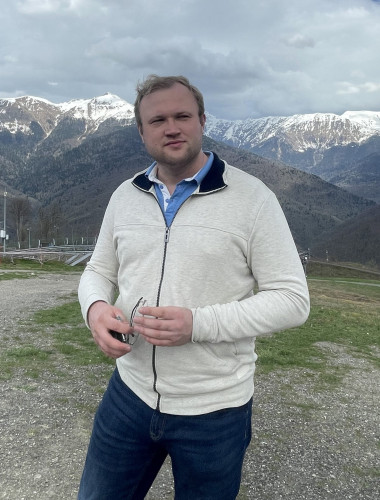Evgeny Alakaev is a political prisoner
A Russian army officer has been sentenced to 18 years in a penal colony for corresponding with a priest and for sharing a photo of a document about peacekeepers’ casualties in Nagorno-Karabakh
The ‘Political Prisoners. Memorial’ human rights project, in accordance with international standards, considers Evgeny Alakaev a political prisoner. Alakaev was convicted on charges of unlawfully obtaining and distributing information constituting a state secret and of treason. The court found Alakaev had sent a photograph of a document containing information about the deaths of Russian peacekeepers in Nagorno-Karabakh to his mother and to a priest of the Ukrainian Greek Catholic Church, in correspondence with whom Alakaev allegedly also passed secret information. Alakaev’s prosecution and conviction violated his right to freedom of expression and were related to his political beliefs. We demand the immediate release of Evgeny Alakaev and that all criminal charges against him be dropped.
Who is Evgeny Alakaev and what were the charges against him?
Evgeny Alakaev, a graduate of the law and history faculties of Moscow State University, is a member of the Russian Association of Classical Scholars and a Catholic. From December 2021, Alakaev served in the Military-Political Department of the Central Military District in Yekaterinburg. According to the investigative authorities, in September 2023 Alakaev unlawfully photographed and sent to his mother and a priest of his acquaintance, Konstantin Mironov, a classified document about the deaths of Russian peacekeepers in Nagorno-Karabakh.
On 4 October 2023, Alakaev’s apartment was searched and his computer and other equipment seized along with some documents. According to eyewitnesses, Alakaev was beaten by the law enforcement officers and taken away. For more than a month, he was held without charge under guard at a military headquarters. A criminal charge of unlawful receipt and distribution of information constituting a state secret (Article 283.1, Part 2, of the Russian Criminal Code) was only brought on 8 November, and on that day he was formally detained. On 9 November, a military court remanded Alakaev in custody.
On 12 March 2024, Alakaev was also charged with treason (Article 275). The investigative authorities claimed Alakaev had passed secret information about the course of the ‘special military operation’ to a priest of the Ukrainian Greek Catholic Church who allegedly collaborated with the Ukrainian Security Service.
Alakaev’s trial was held in camera in a military court in Yekaterinburg. On 24 June 2025 he was sentenced to 18 years in a strict regime penal colony, with the first five years to be served in a cell-type prison. Alakaev maintains his innocence and considers his prosecution to have been politically motivated.
Why do we consider Evgeny Alakaev a political prisoner?
The investigative authorities claimed the document photographed by Alakaev was a state secret on the grounds that it contained ‘information about losses in peacetime during special military operations’ and had borne a ‘secret’ classification. However, information about the deaths of the Russian peacekeepers had already been published in the media. Moreover, the investigators’ claim that the document had been classified as ‘secret’ was not supported by evidence since the original of the document had allegedly been destroyed and a different, edited version had been added to the case file. Furthermore, information about military losses in peacetime should not in principle be classified.
The investigative authorities produced no reliable evidence to prove that the priest with whom Alakaev corresponded was connected to the Ukrainian Security Service, nor that Alakaev should have known of such a connection.
Alakaev’s prosecution, as an army officer, had an obvious political motive. He openly opposed the war and criticised the Russian authorities, something the investigators repeatedly emphasised. Before the criminal case against Alakaev was opened, he had been under surveillance and hidden cameras had been installed in his apartment.
A detailed description of Evgeny Alakaev’s case and of our position is available on our website.
Recognition of an individual as a political prisoner does not imply the ‘Political Prisoners. Memorial’ human rights project agrees with, or approves, their views, statements, or actions.
How can you help?
You can write to Evgeny Alakaev at the following address:
RU: 620019, Екатеринбург, ул. Репина, д. 4, ФКУ СИЗО-1 ГУФСИН России по Свердловской области, Алакаеву Евгению Александровичу 1989 г. р.
EN: Evgeny Aleksandrovich Alakaev (born 1989), Remand Prison No. 1, Federal Penitentiary Service of Russia for Sverdlovsk Oblast, 4 Repina Street, Yekaterinburg, 620019, Russia.
You can also send an email using ZT (for payment with all bank cards), OVD-Info and Memorial-France (free of charge).
Please note that letters in languages other than Russian are highly unlikely to reach the intended recipient.
You can donate to help all political prisoners in Russia.
